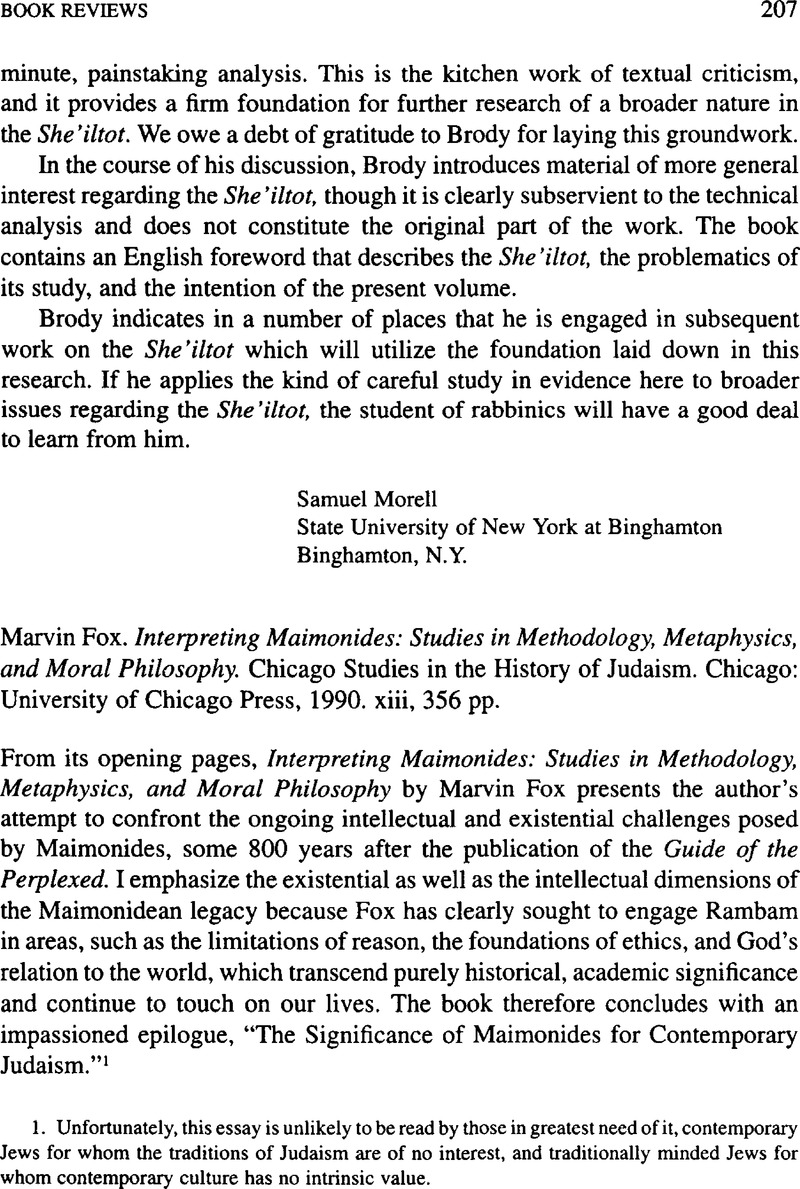No CrossRef data available.
Article contents
Marvin Fox. Interpreting Maimonides: Studies in Methodology, Metaphysics, and Moral Philosophy. Chicago Studies in the History of Judaism. Chicago: University of Chicago Press, 1990. xiii, 356 pp.
Published online by Cambridge University Press: 15 October 2009
Abstract

- Type
- Book Reviews
- Information
- Copyright
- Copyright © Association for Jewish Studies 1995
References
1. Unfortunately, this essay is unlikely to be read by those in greatest need of it, contemporary Jews for whom the traditions of Judaism are of no interest, and traditionally minded Jews for whom contemporary culture has no intrinsic value.
2. For example, “If neither natural science nor divine science can provide us with a satisfactory exposition of God as cause of the world, then we may legitimately seek guidance and instruction from the text of revelation itself. This is just what Maimonides advises his readers to do” (p. 247).
3. For example, Fox (pp. 131 ff.) reads Maimonides' critique (in his Eight Chapters on Ethics, chap. 6) of Sa'adiah Ga'on's category of “rational commandments” as evidence of Rambam's denial of the rationality of moral law and judgments (in the strict sense of the term, as opposed to a more general, utilitarian “reasonableness” after the fact of revelation); the category, Fox argues, is erroneous because no commandments are (strictly) rational. Others read this text and Maimonides' theory quite differently. For example, Isadore Twersky writes of this passage: “Maimonides objected strenuously to those predecessors who said that some commandments were rational laws…. His strenuous objection is nourished by his own passionate conviction that not some but all laws are rational” (Introduction to the Code of Maimonides [New Haven, 1980], p. 458).
4. The principle of dialectical tension is also invoked, for example, on the questions of divine causality (p. 249), creation (pp. 293–296), and prayer (pp. 297, 319).
5. Cf. Guide of the Perplexed 3:25, where Maimonides argues that God's actions cannot be futile, frivolous, or vain, and that God wills “only that which is required by his wisdom to be such…. All these acts are consequent upon his wisdom.”


